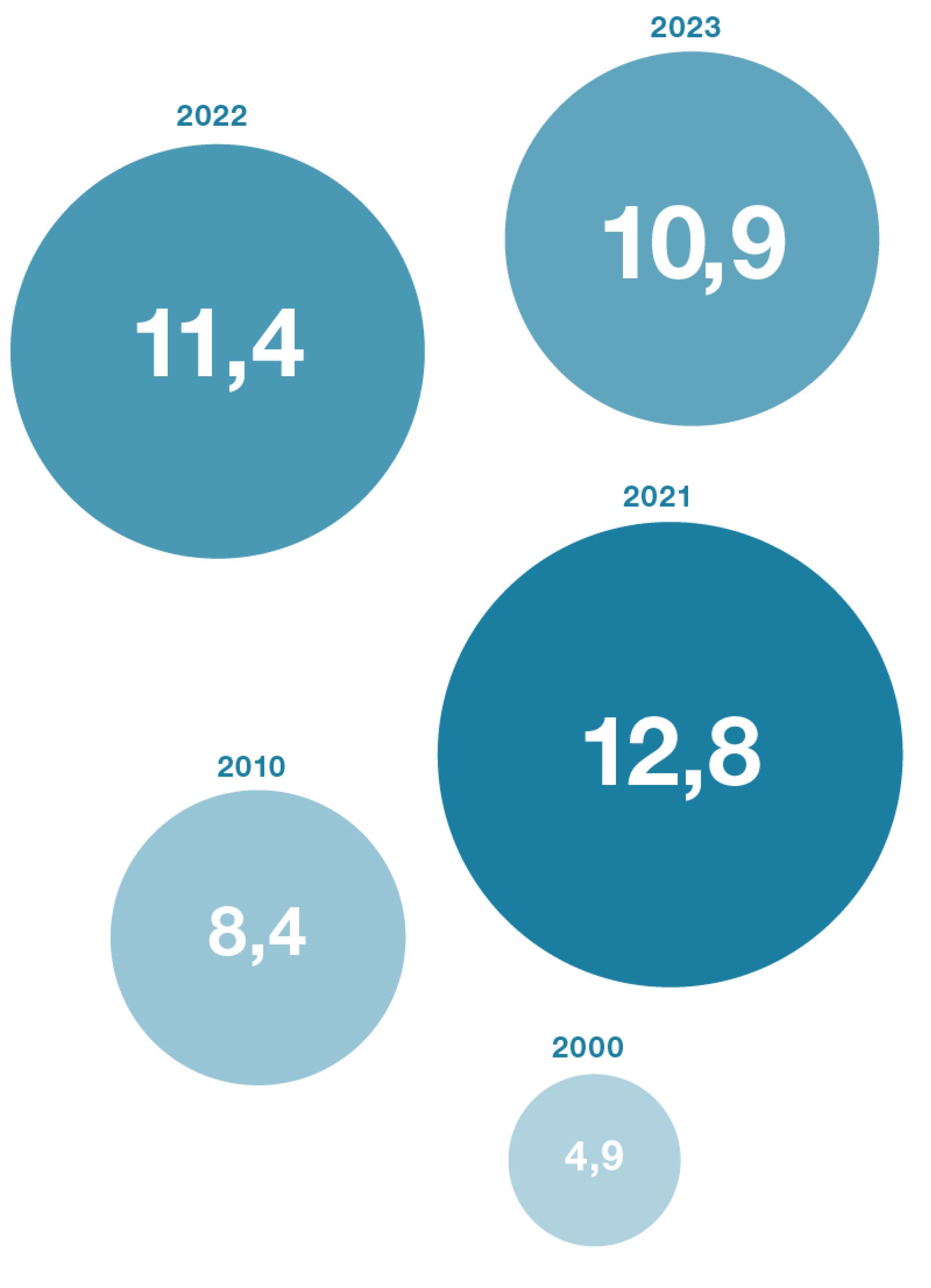Organisation of Parliament
The Swiss Parliament consists of two chambers:
the National Council and the Council of States. The National Council represents the Swiss population,
while the Council of States represents the 26 cantons. The two Councils have
equal powers: All items of business are handled both by the National Council
and the Council of States. The Councils must agree on all items of business
before their decisions can come into force.
The large chamber is the National Council
The National
Council represents the people living in Switzerland. It has 200 seats. Cantons
with a larger population have more seats. Each canton is entitled to at least
one seat. Each member of the National Council represents around 42,000 people. The
National Council is also known as the ‘large chamber’ or the ‘people’s chamber’.
President of the National Council for 2024
Every year, a different member acts as president of the National Council.
Eric Nussbaumer (SP) will preside over the National Council in 2024. The president plans and directs National Council deliberations, heads the Council Office and represents the National Council externally.
Election based on proportional representation
National Council
elections are held every four years in most cantons on a proportional basis. This
means that the seats held by a canton are distributed among the different
political parties based on the votes they receive. This makes it possible for
smaller political forces to be represented in the people’s chamber.
National Council elections schedule
The next elections will be held on the 24th of October 2027.
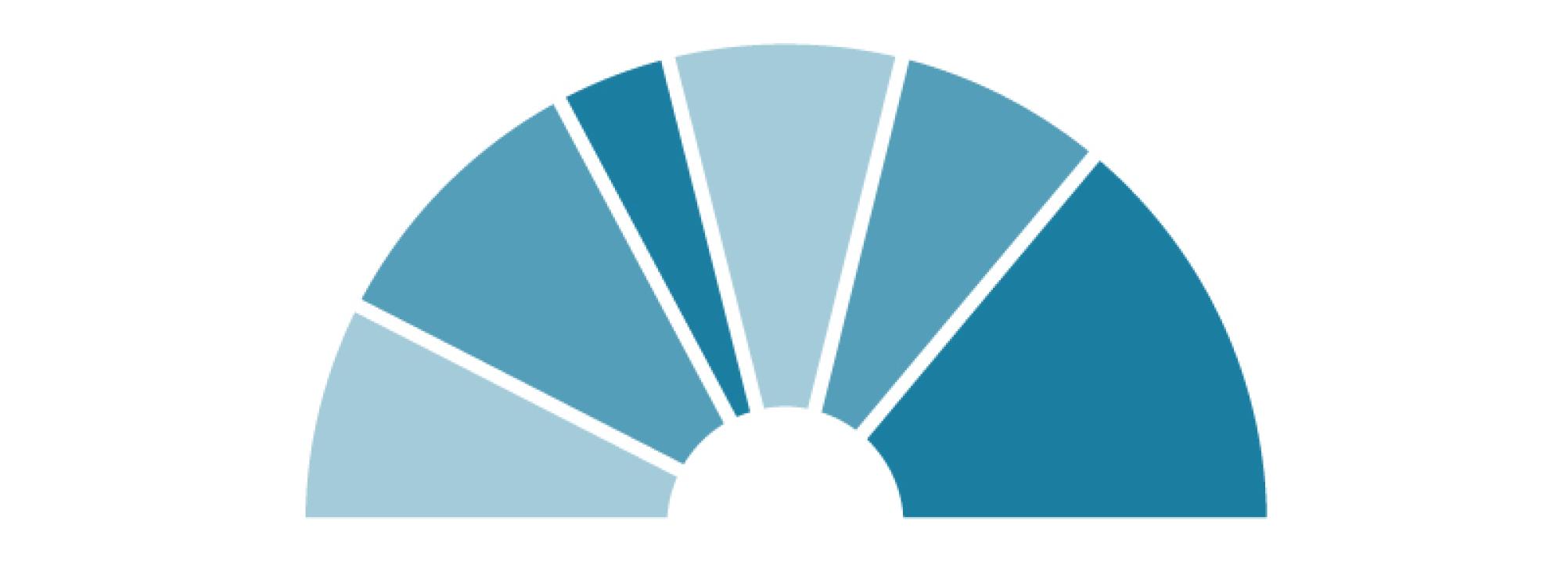
The small chamber is the Council of States
The Council of States has 46 seats and represents the cantons. Twenty cantons have two seats, and six cantons have one seat. The six cantons with only one seat were until 1999 listed as ‘half cantons’ in the Federal Constitution. They are Obwalden and Nidwalden, Appenzell Ausserrhoden and Appenzell Innerrhoden, and Basel-Stadt and Basel-Landschaft. The size of a canton’s population is not a determining factor in its number of seats in the Council of States. The canton of Uri, which has a comparatively small population, has the same number of two seats as the populous canton of Zurich. This system balances out the voting power of the populous cantons in the National Council. The Council of States is often referred to as the ‘small chamber’ or the ‘chamber of the cantons’.
President of the Council of States for 2024
Every year a different member acts as president of the Council of States. Eva Herzog (SP) will preside over the Council of States in 2024. The president plans and directs the Council of States deliberations, heads the Council Office and represents the Council of States externally.
Election based on the simple majority system
Council of States elections are held every four years, in most cantons at the same time as the National Council elections. Council of States elections are almost always based on the simple majority system. This means that the candidate who receives the most votes is elected. The cantons decide individually when and how they elect their representatives to the Council of States.
Council of States elections schedule
The next elections will be held in April or October 2027.

The United Federal Assembly
The National Council and the Council of States convene as the United Federal Assembly to handle specific items of business. The United Federal Assembly elects the members of the federal government and the Federal Supreme Court, the Federal Chancellor, and the Attorney General of Switzerland. It also meets to take note of statements made by the Federal Council, and rule on conflicts of jurisdiction.
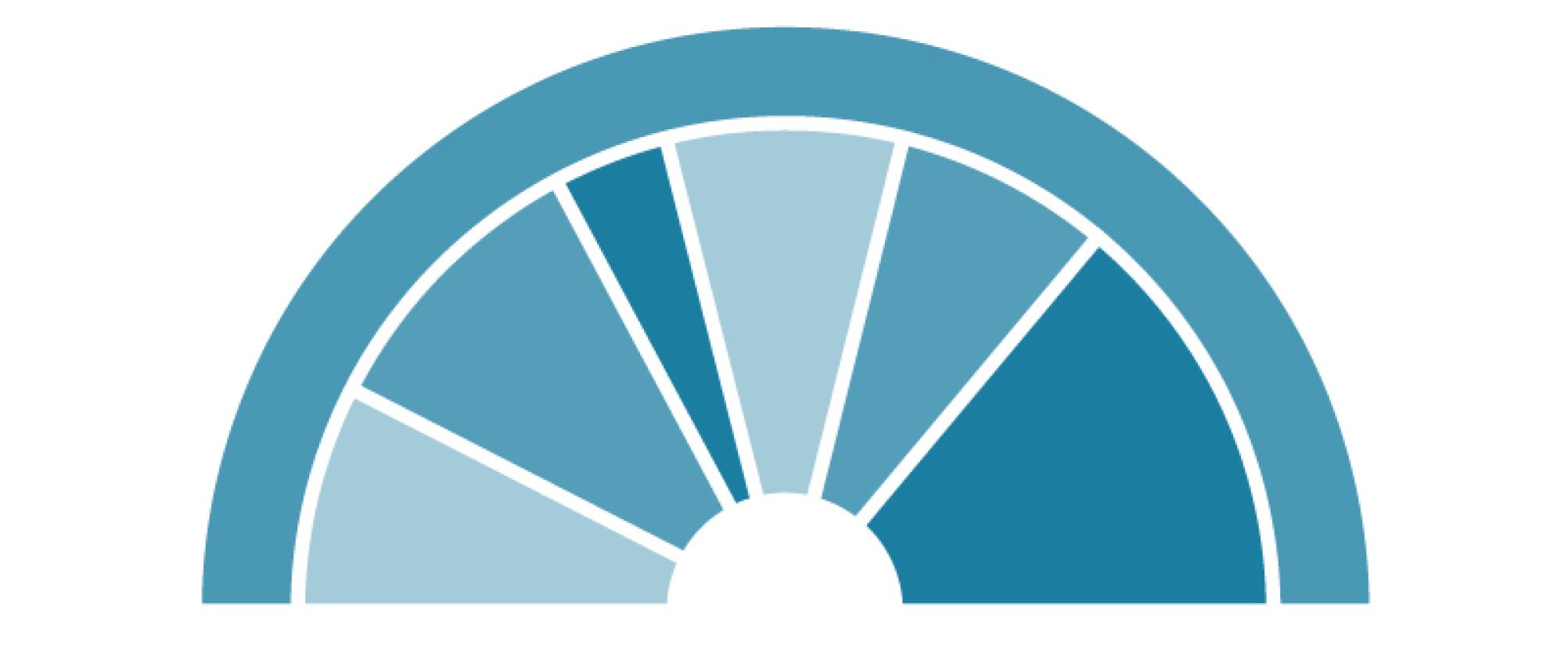
The National Council and the Council of States meet for three-week sessions in spring, summer, autumn and winter to deliberate and rule on items of business. The two chambers meet separately, but under the same roof of the Parliament Building in Bern. Council Office, parliamentary group and committee meetings take place inbetween sessions.
Schedule of sessions for 2024
Spring session:
26 February – 15 March
Summer session:
27 May – 14 June
Autumn session:
9 – 27 September
Winter session:
2 – 20 December
Special session (if required):
15 – 19 April
Election of the presidents of the National Council and of the Council of States:
2 December
Election of the President of the Swiss Confederation and of the Vice President of the Federal Council: 11 December
The meetings are open to the public. The debates are broadcast live on the Parliament website, and published after around an hour as a verbatim report with a video in the Official Bulletin:
www.parliament.ch
Video of the most important bodies of the Federal Assembly (in German)
Allocation of seats in the National Council
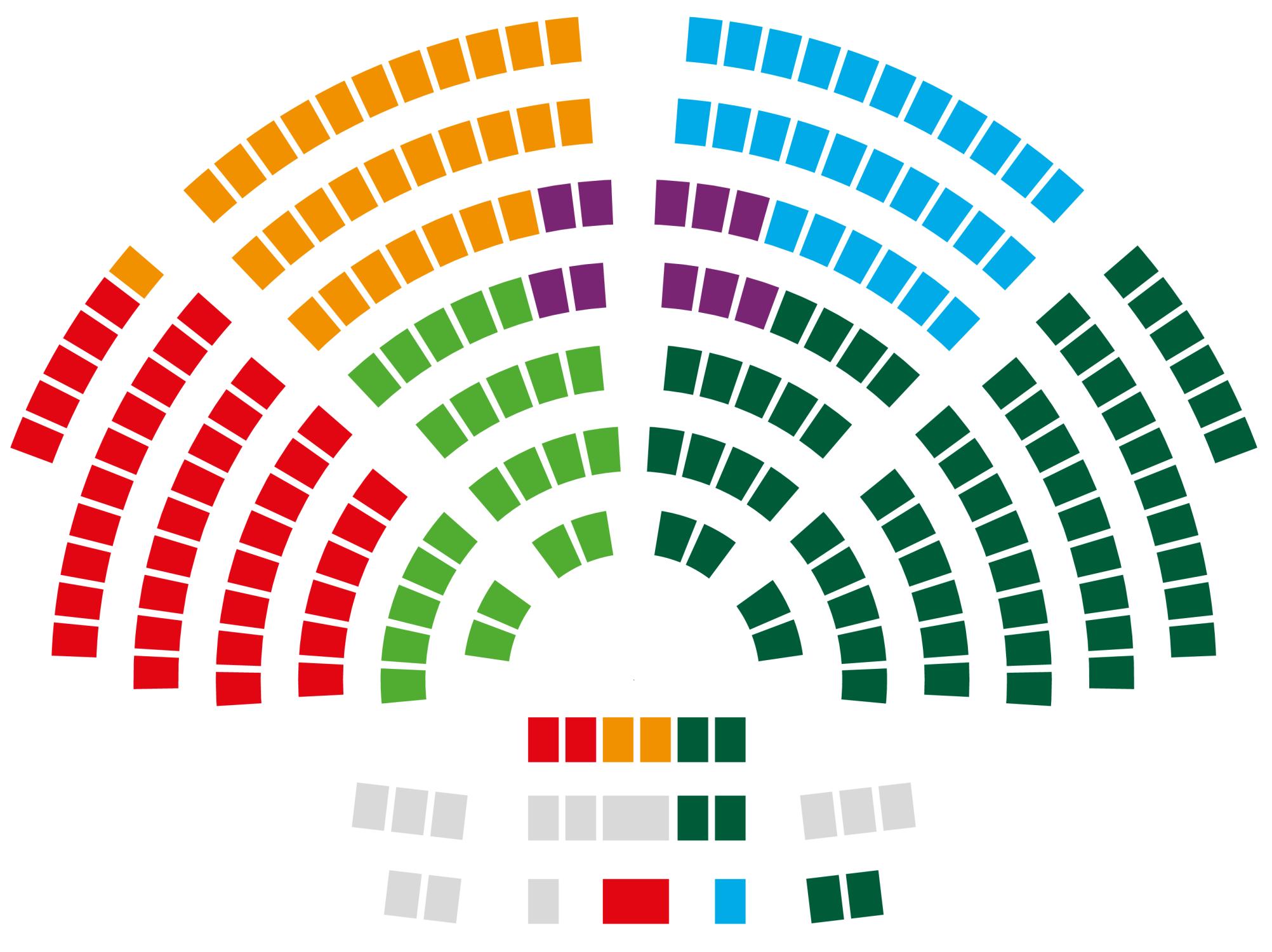
Status 22.01.2024
Allocation of seats in the Council of States
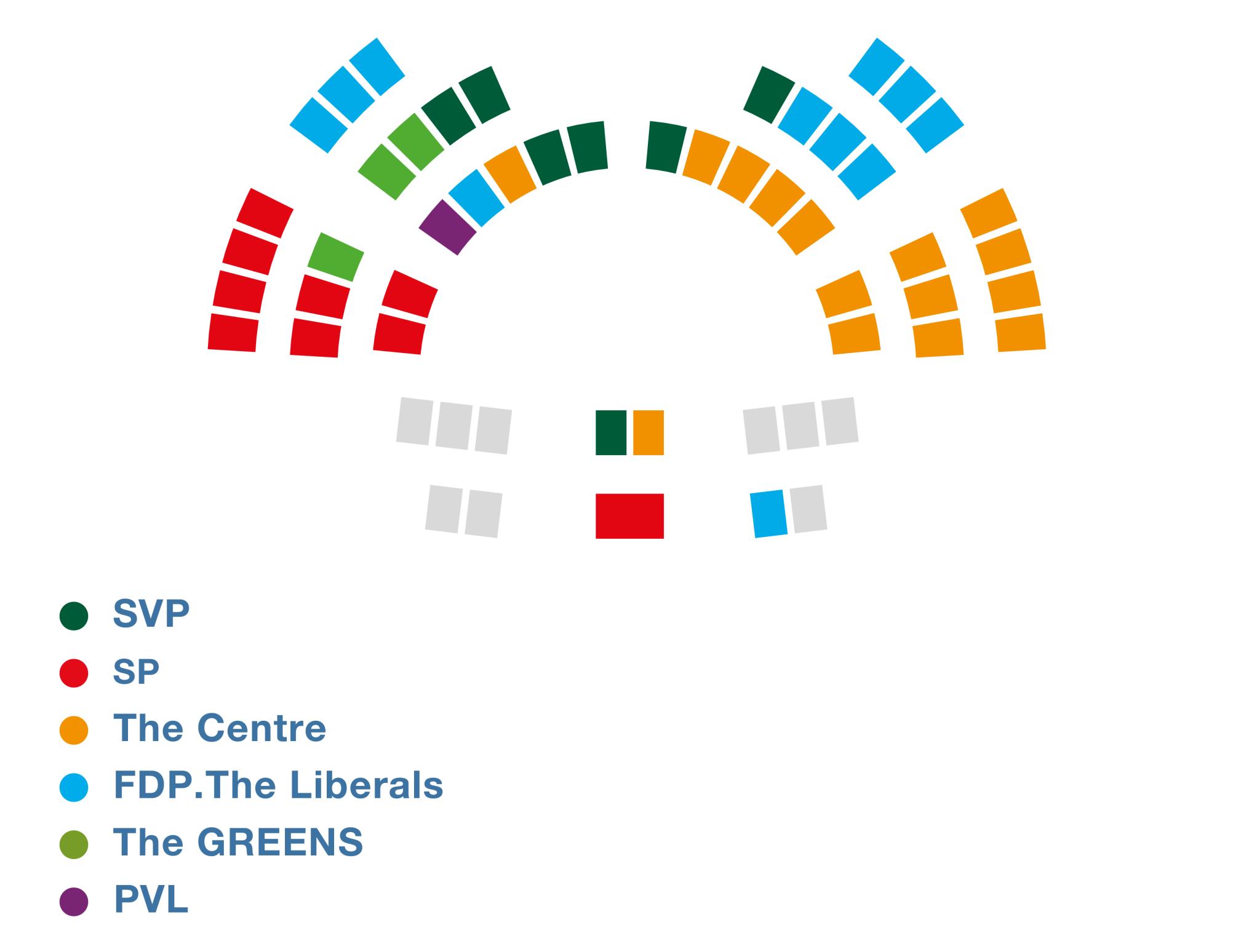
Status 22.01.2024
Debates in the Councils
Despite the fact that the two Councils have the same rights, there are clear differences – not least because of their difference in size. In the National Council, debates are more rigorously regulated, and speaking time is restricted. Members of the National Council wishing to express an opinion must step up to the lectern to do so, while members of the Council of States may speak from their seats and are not subject to speaking restrictions. During Council of States debates, anyone may take the floor. This leaves more room for spontaneity.
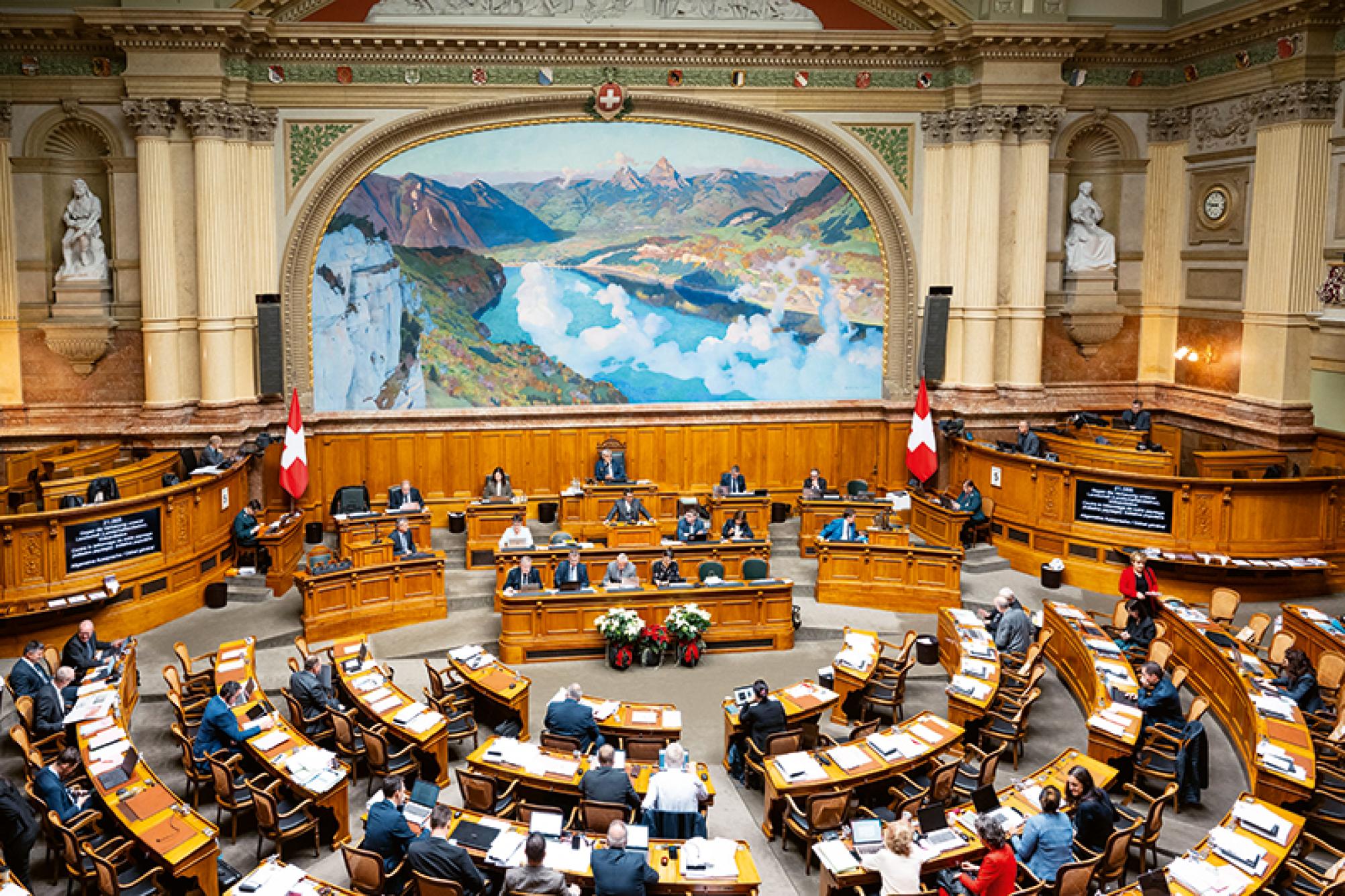
National Council chamber
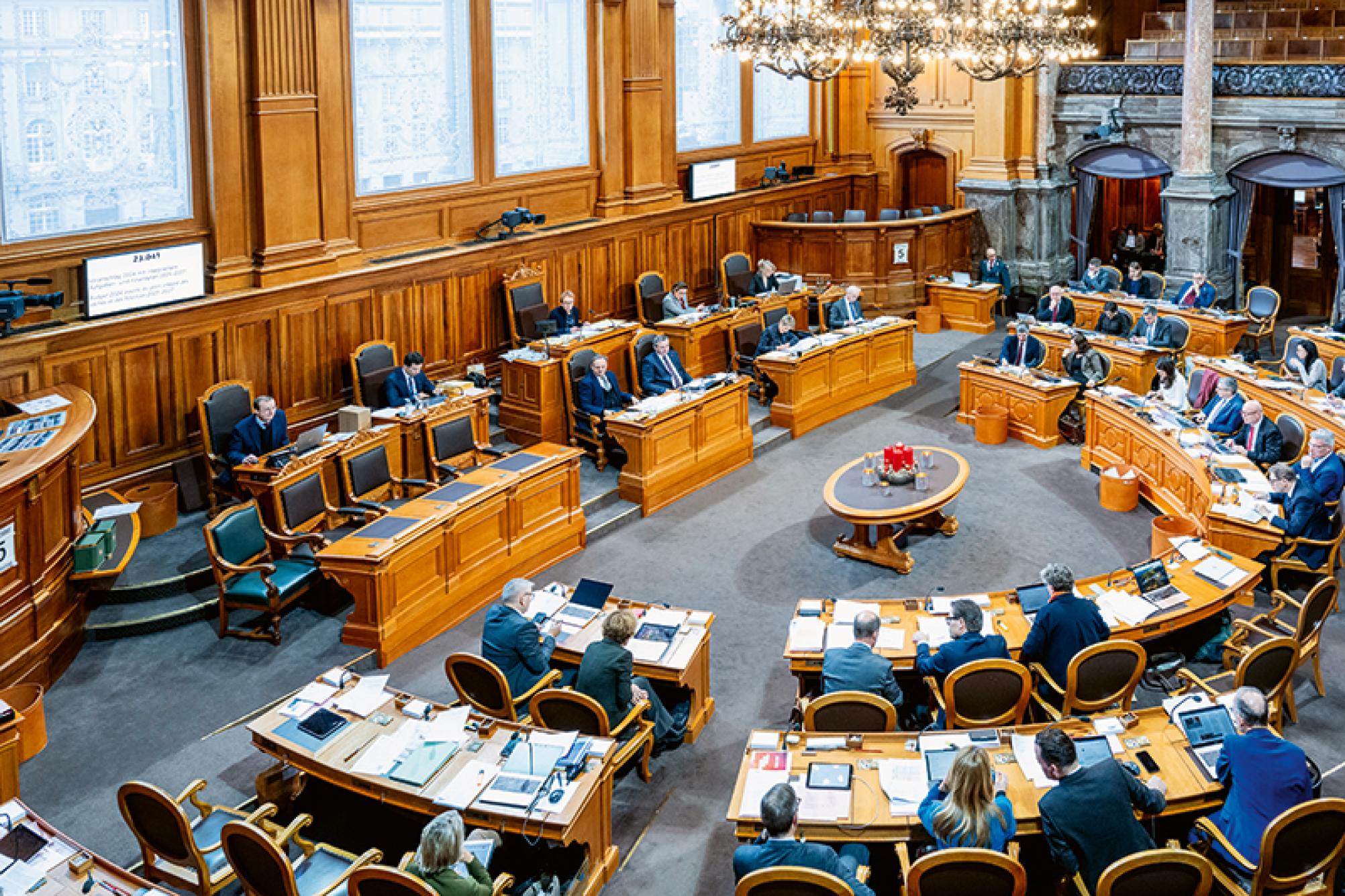
Council of States chamber
Political parties and parliamentary groups
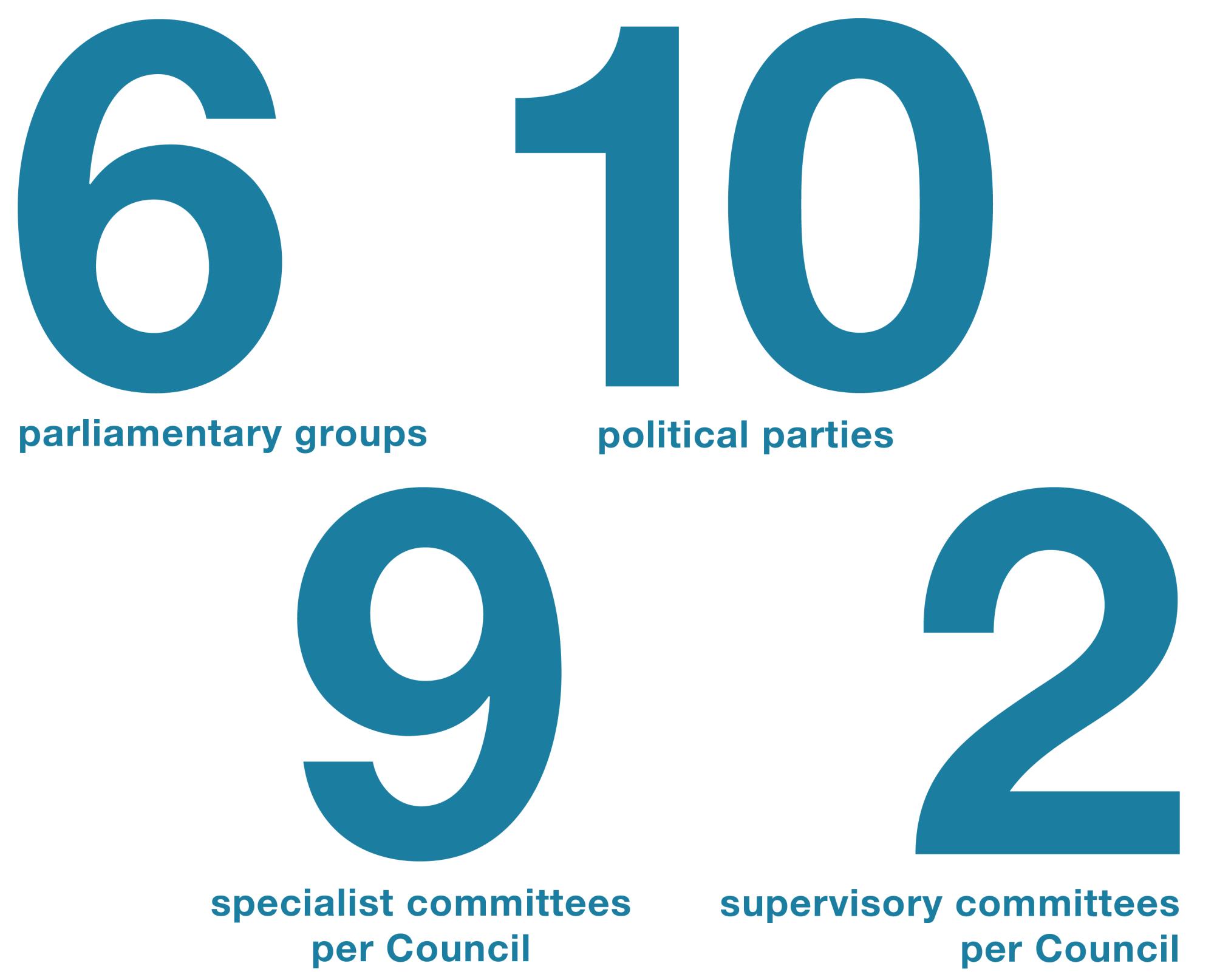
Ten parties are represented in Parliament, none of which holds a majority. There are five parties that each make up 10% or more of the seats in the Federal Assembly (SVP: 24%, SP: 20%, FDP: 17%, The Centre: 15% and The Greens: 13%). These parties are all represented in the Federal Council, with the exception of the Green Party, which gained over 10% of the votes for the first time in the 2019 parliamentary elections. However, parliamentary groups all have greater clout than the parties in the parliamentary process.
Parliament is divided politically into six parliamentary groups. They are made up of council members from the same party or from parties with similar views. Even members of small cantonal parties or independents tend to join a parliamentary group. At least five members are needed to form a parliamentary group.
In the National Council, membership of a parliamentary group is particularly important, since it is a prerequisite for being granted a seat on a committee. The more members a parliamentary group has, the more seats they are entitled to on committees and the greater the influence they have in Parliament. In the Council of States, parliamentary groups play a less important role.
The parliamentary groups are important for the formation of political opinion. They discuss important items of business of the Councils with the aim of agreeing on a common position, which can be supported by the council members in the chamber and before the media and the general public.
Committees and delegations
The full Parliament is made up of 246 people. It would be difficult for so many people to deliberate an item of business. This is why initial discussions on all items of business take place in committees, which hold their meetings in camera. National Council committees comprise 25 members each, while those in the Council of States comprise 13 members. There are different types of committees:
Specialist committees
The National Council and the Council of States have nine committees that deal with specific areas. They discuss items of business related to their specific area and stay up-to-date on any relevant social and political developments.
Specific areas:
Legal affairs
Security policy
State policy
Economy and taxes
Social security and healthcare
Science, education and culture
Transport and telecommunications
Environment, spatial planning and energy
Foreign policy
Supervisory committees
Each chamber has two supervisory committees: one to oversee federal finances and the other to examine the business of other federal authorities (Finance Committees and Control Committees). The most rigorous means of parliamentary oversight is the Parliamentary Investigation Committee (PInC).
Delegations
Delegations are composed of members of both chambers. Three delegations perform supervisory functions; seven delegations represent Swiss Parliament in international parliamentary assemblies; and five additional delegations are in charge of fostering relations with foreign parliaments.
Video ‘Committee room 287 – Where policymaking happens. A Swiss Parliament film’
Parliamentary instruments
Members of the Federal Assembly, parliamentary groups and committees can initiate measures, propose new legislation and request information or reports. These procedural requests are generally addressed to the Federal Council.
Members of the Federal Assembly, parliamentary groups and committees can table a parliamentary initiative to propose draft legislation. If both Councils agree, a committee will draw up the draft legislation.
A motion is used to instruct the Federal Council to draft legislation (an act or an ordinance) or to take a specific measure. A motion must be approved by both Councils.
A postulate is used to instruct the Federal Council to examine and report whether a new law should be drafted or measures taken. A postulate is accepted if a Council agrees to it.
Before a motion or a postulate is submitted to the Council, the Federal Council puts forward a recommendation. The procedural requests recommended for adoption are expedited. The recommendation is prepared by the relevant department.
An interpellation is a request to the Federal Council for information on important incidents in Switzerland and abroad, and on federal government matters. The Federal Council’s response is then sometimes discussed in the Council of States and, in the case of urgent interpellations, also in the National Council.
Questions are used to request information from the Federal Council. The Federal Council answers questions in writing. They are not dealt with in the Council. Urgent questions must be answered by the Federal Council in the same session.
During question time in the National Council, council members can ask the Federal Council questions on current issues. The questions must be submitted in writing one week in advance and will be answered orally by the responsible head of department.
Procedural requests tabled by Council member
